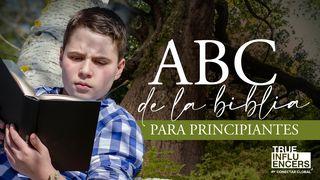Exodus: Of Laws and LoveMuestra

Love Over Liberty
By Pastor Dan Hickling
“If you buy a Hebrew servant, he shall serve six years; and in the seventh he shall go out free and pay nothing.If he comes in by himself, he shall go out by himself; if hecomes inmarried, then his wife shall go out with him. . . . But if the servant plainly says, ‘I love my master, my wife, and my children; I will not go out free,’then his master shall bring him to thejudges. He shall also bring him to the door, or to the doorpost, and his master shall pierce his ear with an awl; and he shall serve him forever.”—Exodus 21:2–6 (NKJV)
We’re in that section of Exodus where God is giving His people a new set of instructions to live by that will reflect His heart in contrast to the idolatrous gods they were exposed to in Egypt. And as we come to this passage, we see the principles the Lord establishes for the relationship between servants and masters.
Now, let’s get this out of the way up front. It’s common for us to view sections of Scripture like this through a contemporary lens and arrive at some serious misunderstandings. To our modern minds, the concept of someone selling themselves into a life of servitude to a “master” is reprehensible. In our context, this sounds similar to abusive systems both past and present. But we need to pause and understand that the Lord is describing something far removed from this. In the ancient world, it was a matter of fact that many people were born into an impoverished condition without any property of their own. Their only hope of survival was to attach themselves to another household that could cover their needs. That’s the stark reality of the social structure of the ancient world—servitude was a provision for the poor.
It’s within this construct that God instructs His people on how they were to behave; and it’s vital we see His heart was for servitude among His people to be founded on the virtue of love. That’s right, love! Notice that a servant was to commit themselves for six whole years and was then given the ability to leave on their seventh year of service. This put a check on the potential abuses that could occur within such a structure. But if that servant’s master had been benevolent and just in their treatment and the servant came to love them, they had the option to be part of that household for the rest of their lives. But mark well, it was the servant’s choice to make and the motivation was nothing less than love. And when this route was chosen, a servant’s love for another became more powerful than their personal liberty.
Much has changed in the three and a half millennia since this was written, but the principle of love being more powerful than personal liberties is as true now as it was then! We’re no longer compelled to live under the social structure given to the Israelites, yet, as followers of Jesus, we’re to choose love over liberty as we relate to others.
In Christ, life isn’t about preserving our independence at all costs; rather, it’s about recognizing what it cost the Lord to redeem us and allowing the love that compelled Him to do so to flow freely through us to others (Romans 5:5). When God establishes a community, be it ancient Israel or the Christian Church, He wants love to flow throughout its members. Love is the lifeblood that keeps the body of believers healthy and holy, leading them to honor and glorify the God who saves and sanctifies them.
Pause: What was to serve as the foundation for the system of servitude within the community of Israel?
Practice: Consider how this principle finds a parallel in the life of the Christian.
Pray: Lord, help me to recognize my need to better understand and extend Your love. Give me a heart that desires to exercise Your love more than my personal liberties. Amen.
Escritura
Acerca de este Plan

In part four of this seven-part study through the Book of Exodus, we'll explore Exodus 18–23.
More
Planes relacionados

La Gracia. 7 Claves Para Vivir en Plenitud.
Marcas De Un Discípulo

Testigos Del Milagro: La Primera Navidad

ABC De La Oración ... Para Principiantes.

Confiando en Los Propósitos De Dios

¡Levántate! 7 Claves Para Levantarte Y Seguir.

1 Tesalonicenses: Modelos a imitar

ABC De La Biblia Para Principiantes
